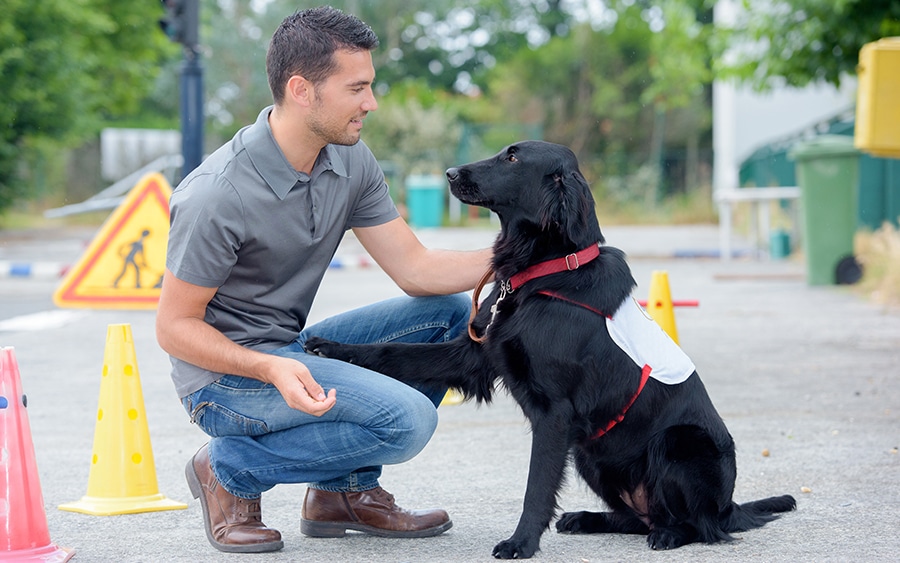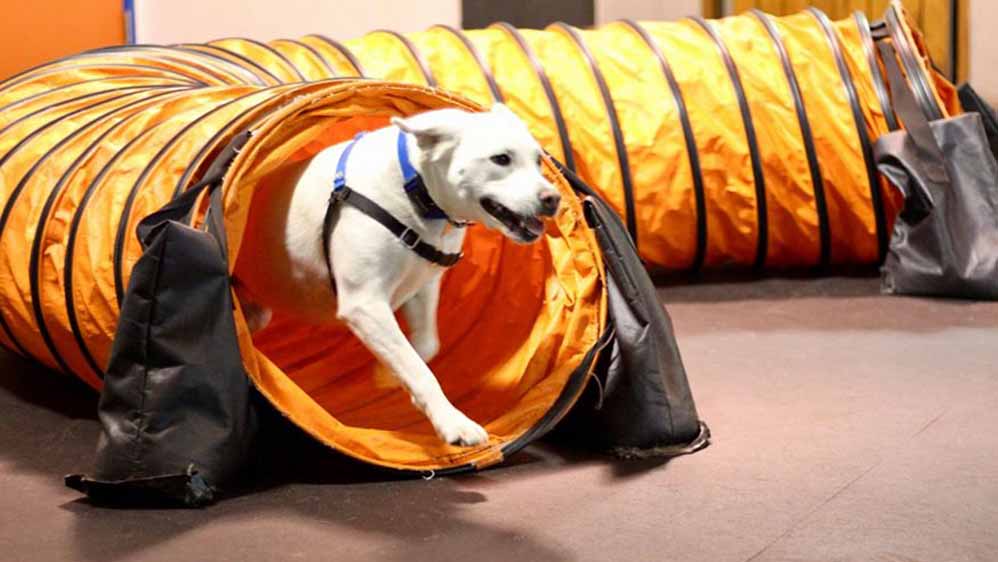Unlock Your Dog's Possible: Proven Pet Dog Training Strategies for Success
Reliable pet training is a nuanced procedure that rests on understanding canine habits and employing scientifically backed techniques. dog training charlotte nc. By incorporating positive reinforcement, developing clear commands, and prioritizing socializing, pet owners can cultivate a productive relationship with their animals. Nevertheless, obstacles usually occur that require customized options and a patient approach. Exploring these confirmed techniques reveals not only the potential for behavior renovation but additionally the deeper bond that can be developed in between proprietor and canine. What necessary approaches must be thought about to truly unlock your pet dog's possibility?
Understanding Canine Actions
Comprehending dog behavior is important for efficient training and fostering a positive relationship between pet dogs and their proprietors. A comprehensive grasp of canine body movement, vocalizations, and social interactions is critical for identifying their needs and feelings. Pet dogs communicate mostly through non-verbal signs; for example, a wagging tail might indicate enjoyment, while pinned ears can indicate anxiety or submission.

Moreover, environmental factors play a substantial role in shaping a pet's actions. Changes in regular, brand-new surroundings, or the existence of unknown people can result in tension or stress and anxiety in dogs. Identifying these triggers allows owners to reduce negative reactions and develop ideal training methods.
Ultimately, a deep understanding of pet actions lays the structure for effective training techniques, improving both habits and the general bond in between the canine and its owner. dog training charlotte nc. This expertise is important for cultivating a well-adjusted, pleased canine companion
Favorable Reinforcement Methods
Effective training counts heavily on favorable reinforcement strategies, which have been shown to yield significant results in forming desired behaviors in pets. This technique entails compensating a canine for displaying details habits, consequently enhancing the possibility that these actions will certainly be duplicated. Incentives can take numerous forms, including treats, praise, toys, or playtime, depending upon what motivates the private pet dog.

It is necessary to slowly terminate benefits as the pet discovers the habits, transitioning to recurring reinforcement. This approach preserves the habits over time while preventing reliance on consistent rewards. By concentrating on positive reinforcement, trainers can cultivate a trusting connection with their canines, promoting a cooperative and healthy and balanced training setting that improves general obedience and efficiency.
Developing Consistent Commands
An essential aspect of successful dog training is the facility of consistent commands. Consistency in commands is crucial for reliable communication in between look here the pet and the fitness instructor. When commands are uniform, canines find out to link details words with preferred behaviors, which increases the training procedure and improves understanding.
To establish constant commands, it is necessary that all family members utilize the same terminology and gestures. As an example, if a single person makes use of "sit" while another states "sit down," it can develop confusion for the dog. Select clear, unique words for commands and make certain everybody involved in the pet dog's training sticks to these choices.
Furthermore, rep is key. Strengthen commands via regular practice, making certain that the dog gets sufficient chances to react appropriately. When a dog successfully complies with a command, dog litter box training prompt favorable support must follow. This could be in the type of treats, appreciation, or playtime, strengthening the connection in between the command and the action.
Lastly, hold your horses. Developing consistent commands requires time and initiative. With commitment and clarity, you will certainly assist your dog develop a strong understanding of assumptions, inevitably resulting in a well-behaved friend.
Socialization and Direct Exposure
Interacting socially a pet is essential for promoting a well-adjusted and positive friend. This procedure involves exposing your canine to a variety of environments, individuals, and other animals to develop their social abilities and flexibility. Early socializing, ideally between the ages of 3 to fourteen weeks, is important, as it lays the groundwork for a pet's future habits.
Throughout socializing, goal to supply positive experiences in various setups, such as parks, hectic streets, and homes with other family pets. Present your canine to different stimuli, including noises, sights, and smells, guaranteeing that each experience is gratifying. This exposure assists mitigate worry and stress and anxiety, leading the way for a much more durable pet dog.
Involving in controlled group play sessions with various other pet dogs can also boost social skills, teaching your pet ideal communications and limits. Focusing on socializing will substantially contribute to your canine's general happiness and behavior throughout their life.
Overcoming Common Training Challenges

Pet dogs may struggle to focus in unfamiliar or active setups. Progressively desensitize your dog to disturbances by beginning training in a silent atmosphere and gradually presenting even more stimulations as they end up being competent.
In addition, behavior problems like leaping or excessive barking can become discouraging. Address these by showing alternate habits, such as resting calmly when greeting visitors. Consistency and patience are vital; strengthen preferred habits continually and avoid abuse, which can result in confusion.
Lastly, identify that each pet is special, and training timelines might differ. Dressmaker your technique to your pet's specific demands, and look for professional assistance if needed. With willpower and the right methods, getting over these challenges can result in a well-trained, pleased canine friend.
Final Thought
Finally, unlocking a dog's prospective demands a thorough approach that incorporates an understanding of canine habits, the application of positive support methods, and the establishment of regular commands. Early socialization and exposure to varied settings better improve a pet's flexibility and self-confidence. By dealing with common training challenges with customized methods and persistence, a cooperative and unified connection between pet dog and handler can be promoted, inevitably leading to a mannerly friend efficient in prospering in numerous scenarios.
Effective canine training is a nuanced procedure that hinges on comprehending canine actions and using scientifically backed strategies.Understanding canine habits is crucial for reliable training and cultivating a positive relationship in between dogs and their owners.Reliable training depends greatly on positive support techniques, which have actually been shown to produce substantial outcomes in go to my site forming desired actions in pet dogs. When commands are uniform, dogs find out to associate specific words with preferred habits, which increases the training process and boosts understanding.
In final thought, unlocking a canine's possible necessitates an extensive strategy that includes an understanding of canine habits, the application of positive reinforcement techniques, and the facility of regular commands.